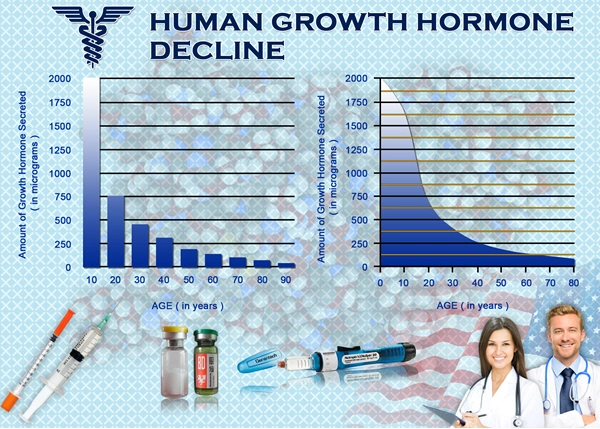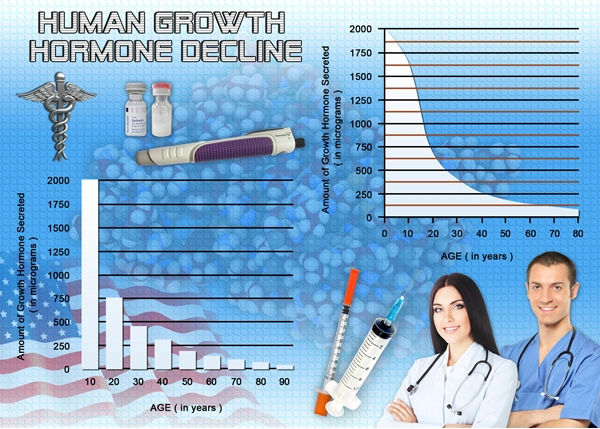Introduction
Hypopituitarism, a condition characterized by diminished hormone secretion from the pituitary gland, has been increasingly recognized as a potential factor in the progression of various neurodegenerative disorders. Among these, Parkinson's disease (PD), a prevalent neurodegenerative disorder among American males, has garnered significant attention due to its debilitating impact on motor function and quality of life. This article delves into the intricate relationship between hypopituitarism and Parkinson's disease, exploring how this hormonal imbalance may influence neurodegeneration and the implications for clinical management.
Understanding Hypopituitarism
Hypopituitarism arises from the pituitary gland's inability to produce adequate levels of one or more hormones, which can result from tumors, traumatic brain injury, or other underlying conditions. The pituitary gland, often referred to as the "master gland," plays a crucial role in regulating various bodily functions through the secretion of hormones that target other glands and organs. When this regulation is disrupted, it can lead to a cascade of systemic effects, including those that impact the nervous system.
The Pathophysiology of Parkinson's Disease
Parkinson's disease is characterized by the progressive degeneration of dopaminergic neurons in the substantia nigra, a region of the brain critical for motor control. The resultant dopamine deficiency leads to the hallmark symptoms of PD, including tremors, rigidity, and bradykinesia. While the exact etiology of PD remains elusive, a combination of genetic predispositions and environmental factors is believed to contribute to its development.
The Intersection of Hypopituitarism and Parkinson's Disease
Emerging research suggests that hypopituitarism may exacerbate the neurodegenerative processes underlying Parkinson's disease. Hormonal imbalances, particularly those involving growth hormone (GH) and thyroid-stimulating hormone (TSH), have been linked to increased oxidative stress and inflammation, both of which are implicated in neuronal damage. Moreover, studies have indicated that patients with hypopituitarism may exhibit a higher prevalence of PD symptoms, suggesting a potential synergistic effect on neurodegeneration.
Clinical Implications and Management Strategies
The recognition of hypopituitarism as a contributing factor to Parkinson's disease progression has significant implications for clinical management. Routine screening for hormonal deficiencies in PD patients could facilitate early intervention, potentially mitigating the severity of neurodegeneration. Hormone replacement therapy (HRT) may offer a promising avenue for managing hypopituitarism in these patients, although further research is needed to establish its efficacy and safety in the context of PD.
Challenges and Future Directions
Despite the growing body of evidence linking hypopituitarism to Parkinson's disease, several challenges remain. The heterogeneity of hypopituitarism and the complexity of its interactions with neurodegenerative processes necessitate a nuanced approach to research and clinical practice. Future studies should focus on elucidating the specific mechanisms by which hormonal imbalances contribute to PD progression and identifying biomarkers that can aid in early diagnosis and treatment.
Conclusion
The relationship between hypopituitarism and Parkinson's disease underscores the importance of a holistic approach to managing neurodegenerative disorders. By addressing hormonal imbalances, clinicians may be able to improve outcomes for American males affected by PD. As research continues to unravel the intricate connections between the endocrine and nervous systems, the hope is that new therapeutic strategies will emerge, offering hope to those grappling with these challenging conditions.

- Unraveling the Link Between Hypopituitarism and Metabolic Syndrome in American Males [Last Updated On: March 9th, 2025] [Originally Added On: March 9th, 2025]
- Hypopituitarism in American Men: Impacts and Management Strategies [Last Updated On: March 11th, 2025] [Originally Added On: March 11th, 2025]
- Unveiling the Cardiovascular Risks Associated with Hypopituitarism in American Males [Last Updated On: March 12th, 2025] [Originally Added On: March 12th, 2025]
- Unveiling the Cardiovascular Implications of Hypopituitarism in American Males [Last Updated On: March 16th, 2025] [Originally Added On: March 16th, 2025]
- Unraveling the Connection: Hypopituitarism and Uterine Fibroids in American Males [Last Updated On: March 16th, 2025] [Originally Added On: March 16th, 2025]
- Exploring Hypopituitarism's Impact on Vaginal Health and the Female Reproductive System [Last Updated On: March 16th, 2025] [Originally Added On: March 16th, 2025]
- Unraveling the Hormonal Link Between Hypopituitarism and Breast Cancer in American Males [Last Updated On: March 16th, 2025] [Originally Added On: March 16th, 2025]
- Hypopituitarism in American Males: Cognitive Impacts and Management Strategies [Last Updated On: March 17th, 2025] [Originally Added On: March 17th, 2025]
- Surgery for Hypopituitarism and Pituitary Tumors in American Males: Benefits and Risks [Last Updated On: March 18th, 2025] [Originally Added On: March 18th, 2025]
- Hypopituitarism's Impact on Skin Health in American Males: Symptoms, Diagnosis, and Management [Last Updated On: March 18th, 2025] [Originally Added On: March 18th, 2025]
- Hypopituitarism in American Males: Cancer Risks and Management Strategies [Last Updated On: March 19th, 2025] [Originally Added On: March 19th, 2025]
- Hypopituitarism in American Males: Managing Depression and Anxiety [Last Updated On: March 19th, 2025] [Originally Added On: March 19th, 2025]
- Hypopituitarism in American Men: Hormonal Imbalance and Sleep Disturbance Effects [Last Updated On: March 20th, 2025] [Originally Added On: March 20th, 2025]
- Hypopituitarism and Obesity in American Males: Diagnosis, Management, and Hormonal Links [Last Updated On: March 20th, 2025] [Originally Added On: March 20th, 2025]
- Hypopituitarism and Autoimmune Disorders: Implications for American Males [Last Updated On: March 20th, 2025] [Originally Added On: March 20th, 2025]
- Multidisciplinary Care Essential for Managing Hypopituitarism in American Males [Last Updated On: March 21st, 2025] [Originally Added On: March 21st, 2025]
- Hypopituitarism in American Males: Impact on Eye Health and Visual Impairments [Last Updated On: March 21st, 2025] [Originally Added On: March 21st, 2025]
- Hypopituitarism in American Males: Impact on Kidney Function and Management Strategies [Last Updated On: March 21st, 2025] [Originally Added On: March 21st, 2025]
- Hypopituitarism in Aging American Males: Symptoms, Impact, and Management Strategies [Last Updated On: March 21st, 2025] [Originally Added On: March 21st, 2025]
- Hypopituitarism and Allergies: Exploring Hormonal Impacts on Immune Response in American Males [Last Updated On: March 22nd, 2025] [Originally Added On: March 22nd, 2025]
- Hypopituitarism's Impact on Gastrointestinal Health in American Males [Last Updated On: March 22nd, 2025] [Originally Added On: March 22nd, 2025]
- Hypopituitarism and Anemia: Erythropoietin Deficiency's Role in American Males [Last Updated On: March 22nd, 2025] [Originally Added On: March 22nd, 2025]
- Hypopituitarism's Impact on Muscle Strength in American Males: Causes and Management [Last Updated On: March 23rd, 2025] [Originally Added On: March 23rd, 2025]
- Hypopituitarism and Hair Loss: Impacts and Treatments for American Males [Last Updated On: March 23rd, 2025] [Originally Added On: March 23rd, 2025]
- Hypopituitarism's Impact on Asthma in American Males: Hormonal Links and Management [Last Updated On: March 23rd, 2025] [Originally Added On: March 23rd, 2025]
- Hypopituitarism and Hearing Loss: Exploring the Link in American Males [Last Updated On: March 23rd, 2025] [Originally Added On: March 23rd, 2025]
- Exploring the Link Between Hypopituitarism and MS in American Males: Clinical Insights [Last Updated On: March 23rd, 2025] [Originally Added On: March 23rd, 2025]
- Hypopituitarism and Dyslipidemia: Hormonal Impacts on Lipid Profiles in American Males [Last Updated On: March 23rd, 2025] [Originally Added On: March 23rd, 2025]
- Hypopituitarism's Link to Alzheimer's in American Males: Hormonal Imbalances and Cognitive Decline [Last Updated On: March 24th, 2025] [Originally Added On: March 24th, 2025]
- Hypopituitarism and Migraines in American Males: Hormonal Fluctuations and Management Strategies [Last Updated On: March 24th, 2025] [Originally Added On: March 24th, 2025]
- Hypopituitarism and Hypertension: Impacts and Management in American Males [Last Updated On: March 24th, 2025] [Originally Added On: March 24th, 2025]
- Hypopituitarism in American Males: Hormonal Impact on Joint Health and Management Strategies [Last Updated On: March 24th, 2025] [Originally Added On: March 24th, 2025]
- Hypopituitarism's Impact on Liver Health in American Males: Mechanisms and Management [Last Updated On: March 24th, 2025] [Originally Added On: March 24th, 2025]
- Hypopituitarism and Stroke Risk in American Males: Hormonal Monitoring and Prevention Strategies [Last Updated On: March 24th, 2025] [Originally Added On: March 24th, 2025]
- Hypopituitarism's Impact on Osteoarthritis in American Males: A Comprehensive Overview [Last Updated On: March 24th, 2025] [Originally Added On: March 24th, 2025]
- Hypopituitarism's Impact on Immune Function in American Males: Diagnosis and Management [Last Updated On: March 24th, 2025] [Originally Added On: March 24th, 2025]
- Hypopituitarism's Impact on Pancreatitis: Risks and Management for American Males [Last Updated On: March 24th, 2025] [Originally Added On: March 24th, 2025]
- Hypopituitarism and Seizures in American Males: Neurological Links and Management [Last Updated On: March 24th, 2025] [Originally Added On: March 24th, 2025]
- Hypopituitarism and Diabetes: Impact on Glucose Metabolism in American Males [Last Updated On: March 25th, 2025] [Originally Added On: March 25th, 2025]
- Hypopituitarism and Chronic Fatigue Syndrome: Overlap and Impact on American Men [Last Updated On: March 25th, 2025] [Originally Added On: March 25th, 2025]
- Hypopituitarism in American Males: Cardiovascular Risks and Management Strategies [Last Updated On: March 25th, 2025] [Originally Added On: March 25th, 2025]
- Autoimmune Link Between Hypopituitarism and RA: Implications for American Males [Last Updated On: March 25th, 2025] [Originally Added On: March 25th, 2025]
- Hypopituitarism and Fibromyalgia: Overlapping Symptoms and Management in American Males [Last Updated On: March 26th, 2025] [Originally Added On: March 26th, 2025]
- Hypopituitarism and Pituitary Cancer: Symptoms, Detection, and Management in American Males [Last Updated On: March 26th, 2025] [Originally Added On: March 26th, 2025]
- Hypopituitarism and Gallbladder Disease: Emerging Links and Implications for American Males [Last Updated On: March 26th, 2025] [Originally Added On: March 26th, 2025]
- Hypopituitarism and Breast Cancer in American Males: Hormonal Links and Clinical Insights [Last Updated On: March 26th, 2025] [Originally Added On: March 26th, 2025]
- Hypopituitarism and Sjögren's Syndrome: Effects on Exocrine Glands in American Males [Last Updated On: March 27th, 2025] [Originally Added On: March 27th, 2025]
- Exploring Hypopituitarism and Lupus Connection in American Males: Clinical Insights [Last Updated On: March 27th, 2025] [Originally Added On: March 27th, 2025]
- Hypopituitarism in American Males: Impacts on Kidney Health and Management Strategies [Last Updated On: March 28th, 2025] [Originally Added On: March 28th, 2025]
- Hypopituitarism and Gout: Uric Acid Link in American Males [Last Updated On: March 28th, 2025] [Originally Added On: March 28th, 2025]
- Autoimmune Links Between Hypopituitarism and Celiac Disease in American Males [Last Updated On: March 28th, 2025] [Originally Added On: March 28th, 2025]
- Hypopituitarism and Liver Cirrhosis: Impact on Hepatic Function in American Males [Last Updated On: March 29th, 2025] [Originally Added On: March 29th, 2025]
- Hypopituitarism and IBD Link in American Males: Gastrointestinal and Hormonal Interplay [Last Updated On: March 29th, 2025] [Originally Added On: March 29th, 2025]
- Hypopituitarism and Adrenal Cancer: Endocrine System Interplay and Management in American Males [Last Updated On: March 29th, 2025] [Originally Added On: March 29th, 2025]
- Hypopituitarism and Ovarian Cancer: Exploring Gynecological Links in American Males [Last Updated On: March 30th, 2025] [Originally Added On: March 30th, 2025]
- Hypopituitarism's Impact on Thyroid Cancer Risk in American Males [Last Updated On: March 30th, 2025] [Originally Added On: March 30th, 2025]
- Hypopituitarism's Impact on Prostate Cancer Risk and Management in American Males [Last Updated On: March 31st, 2025] [Originally Added On: March 31st, 2025]
- Hypopituitarism and Testicular Cancer: Impacts on Male Fertility and Preservation Strategies [Last Updated On: March 31st, 2025] [Originally Added On: March 31st, 2025]
- Hormonal Links Between Hypopituitarism and Endometriosis in American Males Explored [Last Updated On: April 1st, 2025] [Originally Added On: April 1st, 2025]
- Hypopituitarism and Uterine Fibroids: Exploring Gynecological Links in American Males [Last Updated On: April 1st, 2025] [Originally Added On: April 1st, 2025]
- Hypopituitarism and PCOS: Impacts, Diagnosis, and Management in Women's Health [Last Updated On: April 2nd, 2025] [Originally Added On: April 2nd, 2025]
- Hypopituitarism's Impact on Penile Health in American Males: Diagnosis and Management [Last Updated On: April 6th, 2025] [Originally Added On: April 6th, 2025]
- Hypopituitarism's Impact on Male Vaginal Health: Hormonal Imbalances and Comprehensive Care [Last Updated On: April 7th, 2025] [Originally Added On: April 7th, 2025]
- Hypopituitarism and Premature Ejaculation: Exploring Links and Treatment in American Males [Last Updated On: April 8th, 2025] [Originally Added On: April 8th, 2025]
- Hypopituitarism's Impact on Male Fertility: Diagnosis, Management, and Treatment for American Men [Last Updated On: April 10th, 2025] [Originally Added On: April 10th, 2025]
- Hypopituitarism and Cervical Cancer: The Crucial Role of Hormonal Monitoring [Last Updated On: April 10th, 2025] [Originally Added On: April 10th, 2025]
- Hypopituitarism and Erectile Dysfunction: Hormonal Links and Treatment Strategies [Last Updated On: April 10th, 2025] [Originally Added On: April 10th, 2025]
- Hypopituitarism and Preeclampsia: The Critical Need for Hormonal Monitoring in Pregnancy [Last Updated On: April 10th, 2025] [Originally Added On: April 10th, 2025]
- Hypopituitarism and Postpartum Depression: Impacts on Mental Health in American Males [Last Updated On: April 12th, 2025] [Originally Added On: April 12th, 2025]
- Hypopituitarism in American Males: Hormonal Impacts on Fertility and Miscarriage Risk [Last Updated On: April 12th, 2025] [Originally Added On: April 12th, 2025]
- Exploring the Metabolic Link Between Hypopituitarism and Gestational Diabetes in American Males [Last Updated On: April 13th, 2025] [Originally Added On: April 13th, 2025]
- Hypopituitarism and Ectopic Pregnancy: Impacts on Women and Role of American Males [Last Updated On: April 13th, 2025] [Originally Added On: April 13th, 2025]
- Hypopituitarism and Acne in American Males: Hormonal Links and Management Strategies [Last Updated On: April 15th, 2025] [Originally Added On: April 15th, 2025]
- Hypopituitarism's Impact on Menopause: Diagnosis, Management, and Hormonal Balance [Last Updated On: April 15th, 2025] [Originally Added On: April 15th, 2025]
- Hypopituitarism's Impact on Lactation in American Males: Challenges and Management [Last Updated On: April 15th, 2025] [Originally Added On: April 15th, 2025]
- Hypopituitarism and Alopecia: Hormonal Imbalances and Hair Loss in American Males [Last Updated On: April 16th, 2025] [Originally Added On: April 16th, 2025]
- Hypopituitarism and Andropause: Impacts, Diagnosis, and Management in Aging Men [Last Updated On: April 18th, 2025] [Originally Added On: April 18th, 2025]
- Hypopituitarism and Vision Loss in American Males: Mechanisms, Symptoms, and Management [Last Updated On: April 18th, 2025] [Originally Added On: April 18th, 2025]
- Hormonal Link Between Hypopituitarism and Hirsutism in American Males: Impacts and Management [Last Updated On: April 18th, 2025] [Originally Added On: April 18th, 2025]
- Hypopituitarism and Vestibular Disorders: Exploring Hormonal Impacts on Balance in American Males [Last Updated On: April 19th, 2025] [Originally Added On: April 19th, 2025]



List of USA state clinics - click a flag below for blood testing clinics.
Word Count: 511



















































